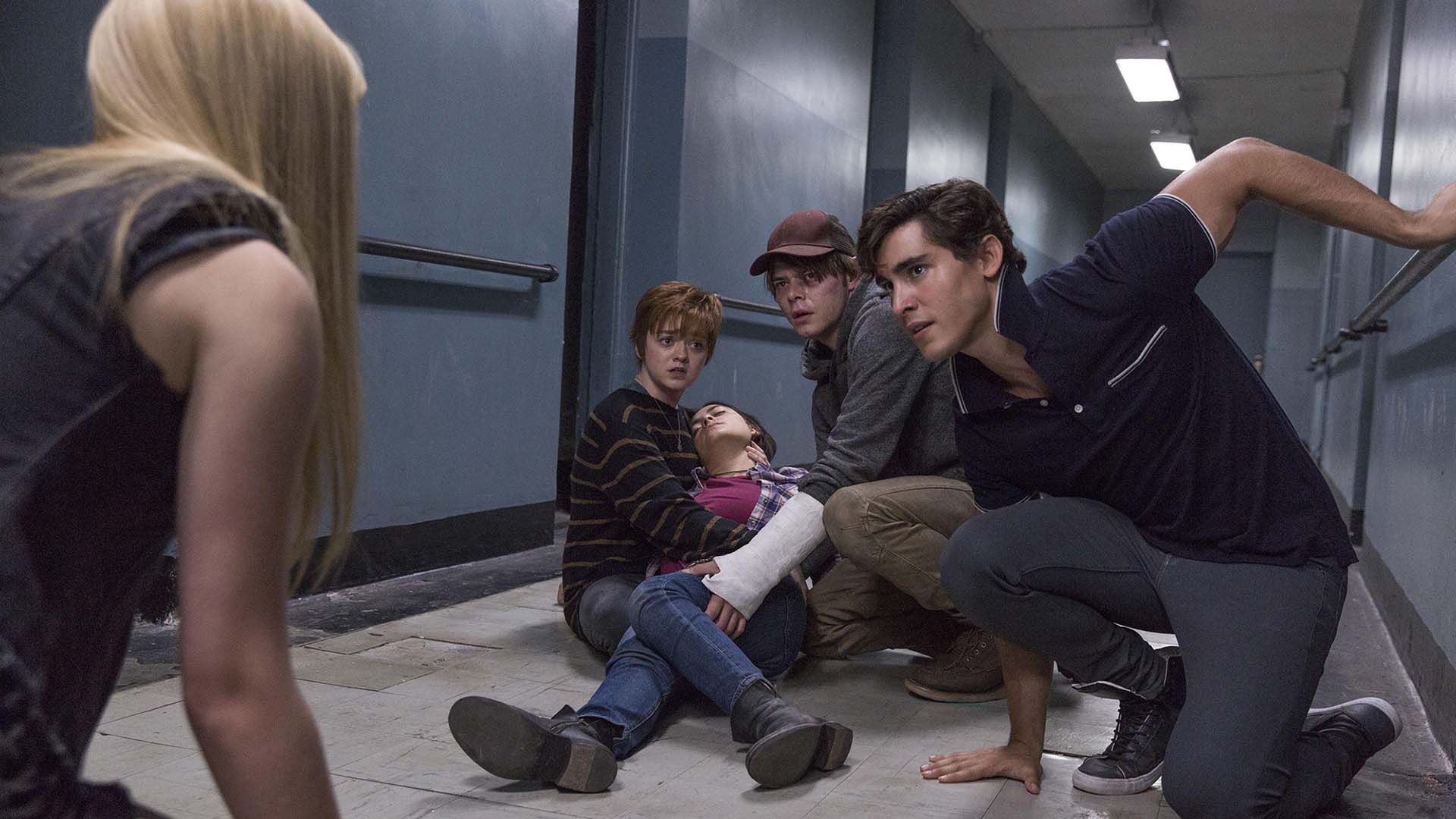The New Mutants
This long-delayed 'X-Men' spinoff mashes up teen, horror and superhero tropes in an oppressively generic fashion.
Overview
There is never a bad time to watch Buffy the Vampire Slayer. But if the urge strikes while you're actually sitting through a movie — and that sudden desire is sparked by glimpsing scenes from the beloved late 90s and early 00s TV show playing in said movie — that's not a great sign. It's a reality with The New Mutants, however, with the latest entry in the X-Men series letting its audience see Buffy clips on more than one occasion. Never subtly deployed, the snippets link in with the film in a number of ways, because this too is about a ragtag group of teens with supernatural abilities fighting off a range of baddies. In fact, one of the many villains in The New Mutants closely resembles the demons in Buffy's famed dialogue-free episode. In case you don't spot that yourself, the movie serves up scenes from the show that overtly stress the similarities. That's the level this long-delayed franchise flick is operating on: happily derivative, happy to call attention to how derivative it is, and seemingly unconcerned if it leaves its viewers desperately wishing they were watching a television program from more than 20 years ago instead.
The 13th film in the X-Men saga, The New Mutants kicks off with a traumatic incident involving Native American 16-year-old Dani Moonstar (Another Life's Blu Hunt). She survives the chaos that destroys her reservation but, when she awakens in a hospital run by Dr Cecilia Reyes (Kill Me Three Times' Alice Braga), she can't remember any of the details. She also isn't permitted to leave. Dani is told she's in a facility for kids just like her and, given the franchise and the film's name, the meaning is clear. Her fellow patients (Emma's Anya Taylor-Joy, Game of Thrones' Maisie Williams, Stranger Things' Charlie Heaton and Trinkets' Henry Zaga) are all well-aware of their extra-special skills, though. Dani doesn't even know what she's capable of — but the fact that her arrival coincides with a series of unsettling altercations that target her new pals gives everyone a few clues.
By trapping five teenagers in an eerie, inescapable facility, trying to placate them by promising that they'll soon be able to venture to greener pastures if they just dutifully stomach what they're being subjected to for now, but taunting them with pain and terror while they wait, The New Mutants' entire premise explains exactly where the X-Men franchise currently sits — unintentionally, yet rather astutely. Logan aside, things haven't been great for the series of late. Actually, that's an understatement. Fans have sat through average and awful chapters in the hope that something better will come in the future, only to be met by more of the same (or worse). Yes, Deadpool and its sequel were hits, but squarely of the one-note, overdone, easily tiring variety. And the less remembered about the overblown and underwhelming X-Men: Apocalypse and the instantly forgettable Dark Phoenix, the better.
A routine mashup of teen, horror and superhero tropes, The New Mutants doesn't improve the saga's fortunes. To be accurate, though, it doesn't really try to. As directed and co-written by The Fault in our Stars filmmaker Josh Boone with co-scribe Knate Lee, it takes a concept that's equal parts The Breakfast Club and One Flew Over the Cuckoo's Nest, adds in angsty adolescents just coming to terms with their hormones and superpowers, and serves up a thoroughly flat and by-the-numbers affair. The film's troubled history is well-documented, with the movie first announced five years ago, cast four years ago and shot three years ago, then pushed back release-wise several times over a period of almost two and a half years — but, now that The New Mutants has finally reached screens after surviving cast member changes, script rewrites, reshoots, the Disney acquisition of Fox and the pandemic, that messy journey to cinemas proves the most interesting thing about it.
Endeavouring to mutate the familiar superhero formula in even the slightest way is a worthy aim, of course, which is one of the reasons that the very idea of this film has always stood out. The Marvel characters that The New Mutants is based on date back to the early 80s on the page, and giving them a horror-driven spin has seemed an inspired choice since the movie was first announced. Alas, combining one genre's cliches with another's, as the end result does, hardly makes for entertaining viewing. Indeed, although it's suitably moody in the stock-standard way seen in every creepy psychiatric facility-set flick, The New Mutants is generic to an oppressive extent.
Filled with up-and-comers circa 2016, the movie's cast can't particularly help either. Williams tries, and the sensitivity she brings to shapeshifter Rahne Sinclair is noticeable. With Moonstar, she also navigates a romantic subplot that touches upon the film's most thoughtful (albeit still glaringly obvious) point — that the persecution of mutants because they're different mirrors plenty in our reality, including the treatment of queer teens. But, with Taylor-Joy in cartoonish territory as Russian sorceress Illyana Rasputin, and Heaton and Zaga simply hitting their respective characters' one note over and over again, any slivers of depth, substance or just plain interest that The New Mutants does manage to rustle up are short-lived. Also fading fast: any hopes that, 20 years since the first X-Men movie released, this franchise has much life left in it.





